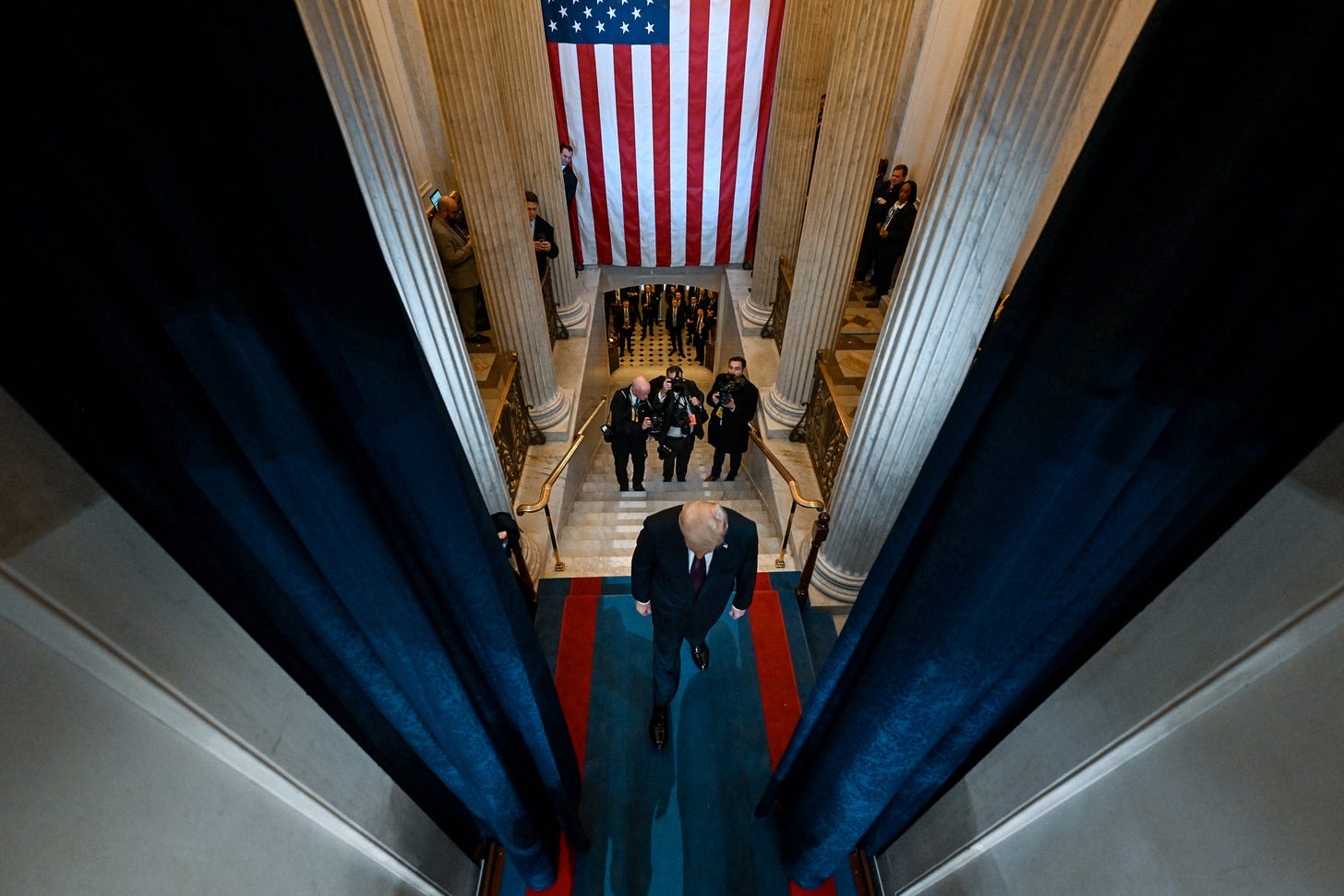Donald Trump Invites Your Worship
His inaugural address was less about a vision for American than his own vision of himself.

THE TONE WAS SET BY FRANKLIN GRAHAM’S INVOCATION. Preachers are a fixture at presidential inaugurations, but until now they’ve confined their words to asking the Almighty to bless the new president and his family and to guide the nation to goodness and mercy. The prophets were popular choices. Not this time. Graham used the opportunity not to praise God but to worship Donald Trump. Regarding the inauguration, Graham exulted “Look what the Lord has done!”
It was a theme the most glassy-eyed Trump acolytes have sounded since the Pennsylvania assassination attempt—that God turned Trump’s head a fraction of an inch at just the right moment to spare him for a great purpose. (God neglected, according to this interpretation, to turn the head of Corey Comperatore.) Trump himself echoed this theme in his speech, calling his return to the presidency the “journey to reclaim our republic.”
Those who wish to stop our cause have tried to take my freedom, and indeed, to take my life. Just a few months ago, in that beautiful Pennsylvania field, an assassin’s bullet ripped through my ear. But I felt then, and believe even more so now, that my life was saved for a reason. I was saved by God to make America great again.
The Catholic priest who delivered closing remarks elevated the re-elected president to even greater heights, seeming to sanctify his dead parents and thanking God for having created them so that they could bless the world with Donald.
Trump has never been a religious man, as he has acknowledged many times. He worships himself so devoutly that there was never much room for God. But it does seem possible that after Pennsylvania, and after November 5, and after the whole corporate world has come crawling, and after Big Tech has truckled, and after news organizations have surrendered, that Trump has come around to the idea that God worships Trump, too.
Accordingly, the familiar Trump strut has now taken on a religious/nationalist cast. Invoking “manifest destiny,” he says the United States will “once again consider itself a growing nation, one that increases our wealth, expands our territory”—and as for the Panama Canal, “we’re taking it back.” He’s going to rename the Gulf of Mexico, renew our cities, and send American astronauts to “plant the Stars and Stripes on the planet Mars.”
Karl Marx said that history repeats itself, the first time as tragedy, the second time as farce. Trump’s second victory partakes of both tragedy and farce. As in the past, Trump imagines that he commands magic wands—that by declaring cartels to be terrorist organizations and resorting to the Alien Enemies Act of 1798, he can “eliminate the presence of all foreign gang criminal networks” in American cities, or that by imposing tariffs he can “enrich our citizens,” or (as he promised on the campaign trail but noticeably didn’t mention in his inaugural address) that he can end the Ukraine war in one day. But, unlike in the first term, this time around a cowed leadership class in America—not just in his own party—is conspiring to affirm that the naked emperor is beautifully clothed.
A would-be autocrat is welcomed into office not just without skepticism but with religious zeal and nationalist truculence.
After Trump’s address promising the dawn of a new golden age—“the four greatest years in American history”—the very first act of the new era was to be Carrie Underwood’s rendition of “America the Beautiful.” They handed her the mic, but the music failed to cue up. After everyone looked uncomfortable for a couple of minutes, Underwood sang it a cappella. She improvised in the face of a screw-up. Perhaps it was the first peek into our future—reality will assert itself into the fantasy world Trump aims to create.




